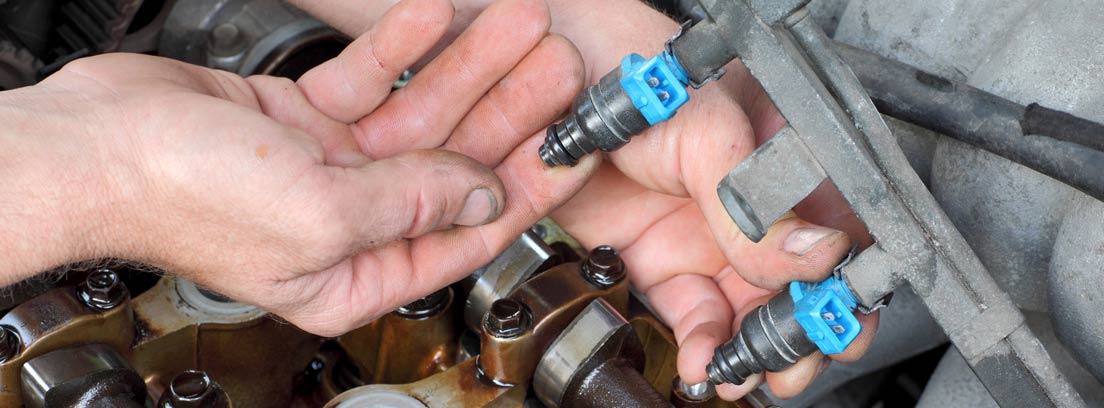
Injector breakdowns are one of the most complex and costly that can affect your vehicle. Fortunately, of the failures detected in the engine injection system, only 6 percent are directly related to a fault in the injectors.
If you suspect that this is your case, we will tell you how to find out if the fault is in the injectors, how to know which injector is failing and how to solve the problem. Also, don’t miss the tips we offer you to prevent these breakdowns.
How to tell if the fuel injectors are failing

The injectors can present certain faults and, as we saw at the beginning, the cost of repair can be very high . Therefore, it is important to be attentive to any symptoms, especially in cases of minor damage, which, on the other hand, are more difficult to detect.
The most common symptoms that we can find are:
Light on on car dashboard
Normally, when the injectors are clogged or present some anomaly, we will see it reflected with its corresponding light on on the dashboard. If not, you should have it checked by a mechanic to avoid major problems.
Loss of engine power
Aside from the indicator light on the dashboard, the first symptom usually detected when the injectors break down is a considerable drop in engine power. The maximum speed is very limited despite the notable increase in usual fuel consumption.
Jerks when walking
If the injectors are worn or clogged, the car will jerk while driving or even stop. In addition, we will notice the characteristic smell of unburned fuel.
black smoke
When the injector failure’s origin is related to any of the system’s elements because it has been left permanently open, we will see that the exhaust pipe emits black smoke and that the spark plugs are wet.
Engine noises
Another of the most common symptoms of injector failure is that the engine makes strange and violent noises. In addition, it is difficult to start the car or it does not start at all.
Fuel leak
If the injectors have cracks or fissures, it can cause a fuel leak. If you smell fuel while driving the car, or notice that the car consumes more than usual, it is probably due to a fault in the injectors.
How to solve injector failure?
If you suspect that your car’s injectors are failing, it is best to go as soon as possible to a specialized center that has a diagnostic terminal with which they can point out the specific injector or injectors that are causing problems.
Another option -although less advisable- is to check its operation yourself. To do this, place the injector ducts inside some plastic cups (one cup for each injector), start the car at idle and see how the injectors react . If you detect that one of the injectors fills the fuel glass faster than the others, it is defective.
But, as we say, the ideal is to move the car to the workshop , if possible in a tow truck so as not to force it too much and prevent the breakdown from getting worse. This detail is crucial, especially if you think that the injectors may be open, since in that case they could cause damage to the catalyst and the cylinders, which would make the breakdown much more complicated and increase the repair cost.
Can injector problems be prevented?

Yes, it is also the most economical option to avoid this problem. Apart from the inspections that must be carried out on the vehicle , there are another series of actions that can help prevent problems with the injectors, for example:
- Do not drive with the deposit in reserve . If you use the fuel to the maximum you will reach the part where all the impurities accumulate.
- If you see that the tanker is filling the gas station’s tanks, go to another service station. When the hoses of these trucks add new fuel, the pressure it exerts causes all the deposits and impurities to be removed.
- Change the fuel filter when your manufacturer indicates, or at least every 30,000 kilometers. The expense it may entail is minimal and, in return, it saves you countless future problems.
- Clean the injectors with specific additives, especially if your car is diesel. This prevents impurities from accumulating and blockages from forming.
If you ever encounter this problem, it may be time to change your car and get new insurance.
Leave a Reply